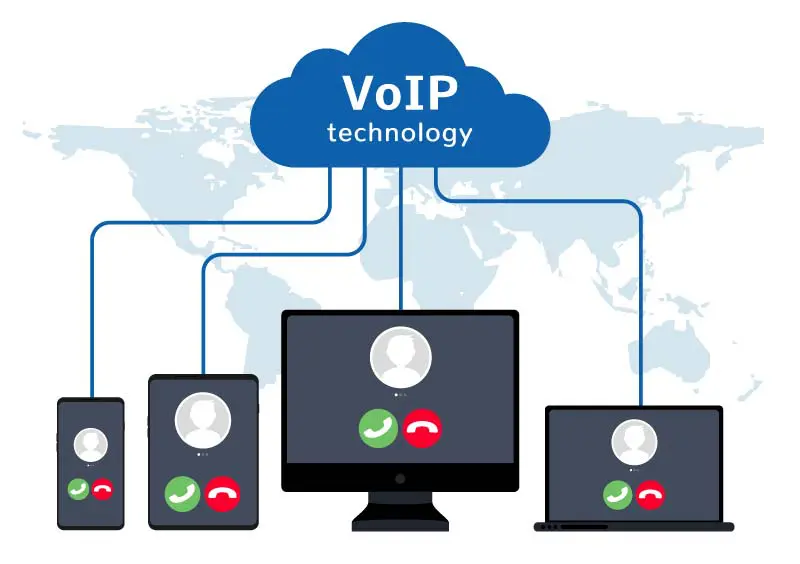In our highly digital world today, a firm’s success rests on how strong and stable its online presence is. IT services and technology in UK, ranging from startup stores in Shoreditch to blue-chip corporates in London’s City, selecting the appropriate web development company in uk is no longer a luxury but an imperative strategy. With so many providers and agencies in this competitive marketplace, how do you cut through the noise and identify the one that actually gets your distinct needs? This guide will examine the top players in the UK web development market, answer basic questions regarding service and support, and offer a nuts-and-bolts method for choosing a partner that drive your business move forward.
Who are the leading UK IT service companies?
The UK IT services market is a dynamic landscape, with a combination of global majors, large domestic players, and specialist regional MSPs. They are categorized to identify who addresses which part of the market.
Tier 1: The Global Powerhouses:
They are billion-dollar companies offering a complete range of services to large multinationals and governments. They dominate big-budget digital transformation initiatives, consulting, and outsourcing.
IBM UK: IBM UK is a hybrid cloud (through Red Hat) and artificial intelligence (Watson) leader. They deal with hard, enterprise-level transformations.
Accenture UK: An international consulting giant, Accenture is focused on strategy, digital, technology, and operations. Accenture is renowned for assisting clients to reimagine their business models end-to-end through technology.
Capgemini UK: Capgemini is strong in the UK and is especially renowned for its activities within the financial services and government sectors.
Fujitsu UK: A heavyweight with a long-established presence in the UK, offering IT services, infrastructure, and solutions. They are one of the main suppliers to the UK government and large business, supplying everything from hardware to managed services.
Tier 2: Large UK-Focused and European Providers:
These players tend to be more flexible and embedded within the UK mid-market, with a robust combination of strategic acumen and hands-on managed services.
Computacenter: A prominent independent IT infrastructure services provider. They possess a robust UK and European presence, providing hardware, software, and cloud platform sourcing, implementation, and support.
Mobit Solutions: Mobitsolutions is a UK-based web and software development, IT services, and digital marketing company offering cost-effective, tailored solutions for businesses. Mobitsolutions provides innovative digital solutions and after-sales support.
Softcat PLC: A well-respected FTSE 250 business renowned for its outstanding corporate culture and customer service. Softcat delivers IT infrastructure solutions, such as hardware, software, licensing, and managed services, to the mid-market.
Bytes Technology Group: Another significant UK software and cloud solutions provider, providing licensing, managed services, and security solutions to public and private sector organizations.
SCC (Specialist Computer Center’s): SCC provides large corporate and public sector customers with a wide range of services from data centers to workplace collaboration.
Tier 3: Top Managed Service Providers (MSPs) for SMEs:
This tier is where the majority of small and medium-sized businesses (SMEs) will find their best partner. These firms specialize in offering outsourced IT services, security, and strategic advice specifically designed for companies with 10 to 500 employees.
Established National MSPs: Examples include Jisc (expert in the education and research marketplace), ANS (now CANCOM-owned, dominant in cloud and digital transformation), and Node4 (data center and cloud specialist).
Award-Winning Regional MSPs: The real backbone of UK SME IT assistance. These businesses might not have a national brand footprint, but they rule their geographies with outstanding, customized service. Search for regional and national award winners and runners-up such as IT Europa’s MSP of the Year or CRN’s MSP Awards. Some examples (but not limited to) include providers such as Air IT, Cirrus, Tech Center, and numerous others who have established excellent reputation locally.
The big takeaway: The “top” firm is solely a function of your size, industry, and requirements. A FTSE 100 firm will go for IBM or Accenture, but an expanding 50-person design firm will be much better served by a top-flight regional MSP that provides a personal touch and scalable services.
Which UK firm provides 24/7 technical support?
With the increasingly digital workplace of today, it is more important than ever to have a trustworthy 24/7 IT support to keep your business functioning seamlessly. Being either an established business or a start-up, the below five companies are prime examples of excellent reputations, quality of service and actual 24/7 availability.
1. Managed247:
Managed247 is a leading UK managed IT services company. They provide 24/7/365 support by an ISO-accredited UK-based service desk and 24/7 monitoring. Their 24/7 service has been specially designed to minimize downtime and keep your business online.
2. Sota (SotaSupport):
Sota has a 24/7, UK-only world-class global service desk staffed by in-house engineers and no outsourcing. They provide help desk, remote and on-site support with focus on quality, speed and security.
3. Akita:
Akita provides genuine 24-hour IT support with strict SLAs and fast response times. They provide remote monitoring, system management and high-priority support, so they are perfect for those organizations that need to be present around the clock.
4. ITCS (Integrated Technology-enabled Communication Solutions):
ITCS specialize in proactive monitoring and 24/7/365 emergency cover. Their engineers use cutting-edge tools to find and fix problems before they become critical, so your systems stay up.
5. Micro Pro:
Micro Pro offers 24/7 help desk and monitoring and disaster recovery and infrastructure management to London and the South East. They suit SMEs needing reactive local support.
How do I select the right technology partner for my business?
Choosing an IT partner is one of the biggest business decisions you’ll ever have to make. Below is a step-by-step approach to making that correct selection.
Step 1: Conduct an Internal Audit:
Know your own situation well before you start talking to others.
Pain Points: What are your most significant IT headaches? (e.g., recurring downtime, sluggish systems, security concerns).
Business Goals: Where is your company going in the next 1-3 years? (e.g., growth, new software deployment, remote work expansion).
Current Stack: Note down what you have currently in hardware, software, and cloud.
Step 2: Define Your Requirements:
Convert your audit into a concise list of requirements. It should include:
Support: Degree of support required (9-5 vs. 24/7), response times for helpdesk.
Security: Necessary services (firewall management, antivirus, email security, compliance).
Infrastructure: Cloud vs. on-premise requirements, backup and disaster recovery requirements.
Strategy: Do you require strategic consulting and quarterly business reviews (QBRs)?
Step 3: Research and Shortlist:
Ask for Referrals: Speak with other business leaders who know you.
Read Reviews: Look on Google, Trustpilot, and case studies on their site.
Look for Specialisms: Some MSPs have a specialism in your sector (e.g., legal, finance, creative), and that can be a massive benefit.
Make a 3-5 company shortlist that appears to match your size and requirements.
Step 4: The Vetting Process & Key Questions to Ask:
This is the most important step. Book meetings and be prepared with hard questions.
Culture & Relationship:
- Will there be a dedicated account manager?
- What does your onboarding process look like?
- Can you provide references from clients in a similar industry and of a similar size to us?
Technical Expertise & Services:
- What method do you use for protecting against cyber threats? Can you talk me through your stack?
- What level of experience do you have with [key software you use, e.g., Microsoft 365, Sage]?
- How do you handle data backups and recovery in case of a disaster?
- Is your pricing all-inclusive, or are there hidden costs for call outs or projects?

What IT services do UK MSPs (Managed Service Providers) provide?
Technology is the backbone of nearly every business today. But maintaining upgrades, security, and 24/7 support can tax your in-house resources. That’s where Managed Service Providers (MSPs) come in. As an outsourced IT department, MSPs handle everything from routine maintenance to long-term planning so you can focus on your business.
Below is an overview of the key IT services UK MSPs typically provide:
1. Helpdesk & IT Support
The core service. This gives users one entry point for all IT problems, questions, and requests, usually offered by telephone, email, and a ticketing system. It involves troubleshooting, software installation, and setting up peripherals.
2. Proactive Monitoring and Maintenance
This is the foundation of the “managed” service. MSPs remotely monitor your network, servers, and workstations 24/7 using sophisticated tools. They install security patches, update software, and do maintenance to avoid issues before they happen.
3. Cybersecurity Services
A strong MSP cybersecurity solution includes:
Endpoint Detection and Response (EDR): Specialized antivirus for identifying and eliminating advanced threats on endpoints.
Email Security: Spam, phishing, and malware-bearing email filtering (e.g., using Mimecast or Proofpoint).
Security Awareness Training: Educating your employees to identify and steer clear of cyber threats.
Multi-Factor Authentication (MFA) Deployment: An essential added layer of security to every login.
4. Cloud Services
MSPs assist companies in tapping the potential of the cloud.
Microsoft 365 / Google Workspace Administration: Installation, licensing, migration, and security setup of these productivity suites.
Public Cloud Management: Maintenance of environments within Azure, AWS, or Google Cloud Platform.
Cloud Infrastructure Design: Designing and supporting scalable and secure cloud-based servers and networks.
5. Data Backup and Disaster Recovery (BDR)
Business continuity is not optional. MSPs offer:
Automated Backups: Periodic, encrypted backups of your vital data to both local and cloud-based destinations.
DR Planning: Having a definite plan to rebuild operations following disaster (e.g., ransomware, fire, flood).
Recovery Testing: Testing backups on a regular basis to ensure they can be recovered quickly and fully.
6. Strategic IT Consulting and vCIO (Virtual Chief Information Officer) service
Technology Roadmaps: Aligning your technology strategy with your business objectives.
Budget Planning: Assisting you to project and budget for IT costs.
Quarterly Business Reviews (QBRs): Official meetings to review performance, address challenges, and look forward.
7. Voice over IP (VoIP) and Communications
Some MSPs also collaborate with or offer new phone systems (such as Microsoft Teams Phone or another VoIP option) to incorporate your voice communications into your IT infrastructure.

Do UK IT firms provide cloud migration and support services?
Yes, Whether it’s a migration from on-premise servers to the cloud or between platforms, UK IT companies and Managed Service Providers (MSPs) are experts at assisting companies in planning, migrating, and supporting cloud environments. Here’s what that typically involves:
Cloud Readiness Assessments:
Prior to migration, IT companies inspect your current infrastructure, workloads, and compliance requirements. They advise on the appropriate combination of public, private or hybrid cloud solution.
Migration Planning & Execution:
They migrate applications, data, and systems to platforms such as Microsoft Azure, AWS, Google Cloud or private data centers. This may entail low-downtime methodologies, testing, and rollback processes.
Security & Compliance:
UK IT businesses include encryption, access controls, and disaster-recovery processes for GDPR and ISO compliance during and after migration.
Managed Cloud Hosting:
Most companies offer fully managed hosting patching, monitoring, scaling, and backup after migration, so your team won’t have to.
Cost Optimization & Support:
They provide support on an as-needed basis, performance tuning, and cost-management services (rightsizing, reserved instances, or multi-cloud strategies).
Why hire a UK IT firm for cloud migration?
Switching to the cloud is not just transferring data from a point A to a point B it’s planning, security, compliance, and support. Here’s why it makes sense to hire a UK-based IT firm:
Local Compliance & Expertise: UK IT firms are well-versed in UK data-protection laws (like GDPR) and sector-specific compliance needs. This reduces your likelihood of facing fines or data breaches at and after migration.
Established Track Records: The majority of UK IT firms specialize in Microsoft Azure, AWS, and hybrid cloud infrastructure. They have already performed migrations for firms such as yours, so you get the advantage of tested and proven experience.
Minimum Downtime: A reputable IT firm can plan and migrate your system with minimal disruption. They develop rollback plans, test workloads and schedule cut-overs to keep your business running and operational.
Focus on Your Business: They handle the complicated technical project, freeing you and your staff to concentrate on operating your business.
Frequently Asked Questions (FAQs)
Q1: What benefits can UK companies gain from outsourcing IT services?
Outsourcing IT services can help reduce costs, improve security, give access to expert skills, and let businesses focus on their main goals instead of handling complex technology themselves.
Q2: Are UK IT service providers suitable for small businesses and startups?
Yes, many IT service providers in the UK specialize in working with small and medium-sized businesses. They offer affordable packages, flexible solutions, and personalized support that fits smaller budgets.
Q3: What steps do UK IT companies take to ensure data security and GDPR compliance?
UK IT companies follow strict GDPR regulations, use data centers located in the UK or approved in the EU, and implement advanced security tools like encryption, firewalls, and multi-factor authentication to protect sensitive information.
Q4: Can UK IT service providers create solutions tailored for specific industries?
Yes, many providers offer customized IT solutions for sectors such as healthcare, finance, legal, retail, and education, ensuring they meet the specific needs of compliance, security, and performance for each industry.
Q5: How are IT services priced in the UK?
Pricing depends on the company size, the extent of the service, and the level of support needed.
Small businesses typically pay a few hundred pounds each month for managed IT services, while larger companies requiring round-the-clock monitoring and advanced security features pay more each month.
Conclusion:
The UK web design industry is teeming with talent and experience in IT services, supporting businesses of all shapes and sizes and aspirations. Research is necessary in order to discover the correct web design company in uk, but the payback is worthwhile a secure, efficient, and future-proof online presence.
With an understanding of the landscape, a knowledge of what questions to ask regarding design, usability, and support, and adherence to a disciplined selection process, you can proceed with confidence. Your ideal web design firm needs to be more than a service provider but should be a growth partner who will assist you in innovating, differentiating, and succeeding in the digital economy of today.



